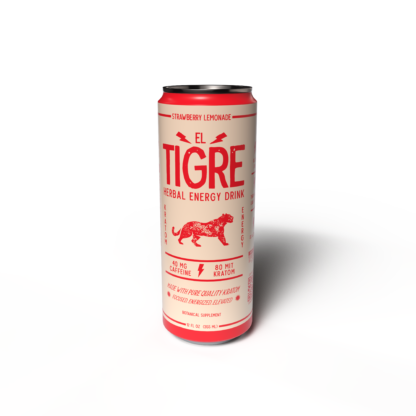How Kratom Energy Drinks May Aid In Managing Inflammation
Potential Anti-Inflammatory Effects of Kratom
Kratom, a tropical tree native to Southeast Asia, has gained popularity for its diverse potential health benefits, including its possible anti-inflammatory properties. Research suggests that compounds within kratom, particularly mitragynine and 7-hydroxymitragynine, may interact with opioid receptors in the body, potentially reducing inflammation associated with various conditions.
Mechanism of Action
Kratom’s potential anti-inflammatory effects are being explored as a possible mechanism for managing inflammation.
Research indicates that mitragynine and 7-hydroxymitragynine, two key alkaloids in kratom, may play a role in this process:
- These compounds are believed to bind to opioid receptors in the body.
- This binding could modulate the release of inflammatory mediators, such as cytokines and prostaglandins.
Studies on Kratom and Inflammation
Research suggests that mitragynine and 7-hydroxymitragynine, two key alkaloids in kratom, may play a role in reducing inflammation. These compounds are believed to bind to opioid receptors in the body.
This binding could modulate the release of inflammatory mediators, such as cytokines and prostaglandins, which contribute to pain and swelling.
Considerations for Using Kratom Energy Drinks for Inflammation Management

The use of kratom energy drinks for managing inflammation is an emerging area of interest. Kratom, a tropical plant known for its potential health benefits, contains alkaloids like mitragynine and 7-hydroxymitragynine that may interact with opioid receptors in the body. This interaction could potentially modulate the release of inflammatory mediators, offering a novel approach to addressing inflammation associated with various conditions.
Dosage and Administration
While research on kratom’s anti-inflammatory properties is ongoing, it’s important to note that more studies are needed to fully understand its effectiveness and potential risks.
The dosage of kratom in energy drinks can vary widely between products, making it crucial to carefully read labels and consult with a healthcare professional before consumption.
Administration methods also differ; some kratom energy drinks are designed to be consumed like regular beverages, while others may come in powdered form for mixing.
It is essential to approach the use of kratom energy drinks for inflammation management with caution and under the guidance of a healthcare provider.
Potential Side Effects and Risks
Kratom energy drinks offer a novel approach to managing inflammation, potentially harnessing the anti-inflammatory properties of kratom alkaloids like mitragynine and 7-hydroxymitragynine. These compounds are believed to interact with opioid receptors in the body, potentially modulating the release of inflammatory mediators such as cytokines and prostaglandins.
However, it’s crucial to approach this method with caution. Research on kratom’s anti-inflammatory effects is still ongoing, and more studies are needed to fully understand its effectiveness and potential risks.
Potential side effects and risks associated with kratom consumption include nausea, dizziness, constipation, and withdrawal symptoms.
Long-term effects are not well understood.
Individuals with pre-existing medical conditions or those taking medications should consult a healthcare professional before using kratom energy drinks.
The dosage of kratom in energy drinks can vary widely between products, making it important to carefully read labels and understand the potential impact.
Drug Interactions
When considering kratom energy drinks for inflammation management, understanding potential drug interactions is crucial. Kratom alkaloids, particularly mitragynine and 7-hydroxymitragynine, can interact with various medications, potentially leading to adverse effects.
Individuals taking opioid medications should exercise extreme caution, as kratom may enhance the effects of opioids, increasing the risk of overdose.
Kratom may also interact with antidepressants, blood thinners, and other drugs metabolized by the liver, altering their effectiveness or causing harmful side effects.
It is essential to consult a healthcare professional before using kratom energy drinks if you are taking any medications to assess potential interactions and risks.
Legal Status and Regulations
The legal status of kratom varies significantly around the world. In some countries, it is completely banned, while in others it is legal but regulated. Within the United States, kratom’s legal standing is complex and differs at both the federal and state levels. Currently, kratom is not classified as a controlled substance at the federal level, meaning it is not explicitly illegal to possess or sell it. However, certain states have implemented their own bans or restrictions on kratom.
It is crucial to be aware of the specific laws regarding kratom in your region and to ensure that any products you purchase are sourced from reputable suppliers who comply with local regulations.
Future Research Directions
Future research should focus on elucidating the precise mechanisms by which kratom alkaloids exert their anti-inflammatory effects.
Clinical trials involving humans are crucial to determine the optimal dosage and duration of kratom use for managing inflammation in various conditions.
Long-term studies are needed to evaluate the potential risks and benefits of chronic kratom consumption for inflammatory diseases.
Research should also investigate the efficacy of kratom energy drinks compared to other anti-inflammatory therapies.
Investigating Specific Compounds in Kratom
Future research should delve deeper into the specific compounds within kratom that contribute to its anti-inflammatory effects. Isolating and studying these individual alkaloids could lead to a better understanding of their mechanisms of action and potential therapeutic applications.
Investigating the interaction between kratom alkaloids and specific inflammatory pathways, such as NF-κB or MAPK, could provide valuable insights into how kratom modulates inflammation at a molecular level.

Further research is also needed to determine the optimal dosage and duration of kratom consumption for managing inflammation in different conditions. Clinical trials with well-defined endpoints and control groups are crucial to establish the efficacy and safety of kratom for specific inflammatory disorders.
Longitudinal studies are essential to assess the long-term effects of kratom use on inflammation and overall health. This will help researchers understand potential risks and benefits associated with chronic kratom consumption.
Long-Term Effects of Kratom Consumption
Future research should focus on elucidating the precise mechanisms by which kratom alkaloids exert their anti-inflammatory effects.
Clinical trials involving humans are crucial to determine the optimal dosage and duration of kratom use for managing inflammation in various conditions.
Long-term studies are needed to evaluate the potential risks and benefits of chronic kratom consumption for inflammatory diseases.
Research should also investigate the efficacy of kratom energy drinks compared to other anti-inflammatory therapies.
Exploring Synergistic Effects with Other Anti-Inflammatory Agents
Future research directions in this area should explore synergistic effects when kratom is combined with other anti-inflammatory agents. Investigating how kratom interacts with conventional medications or complementary therapies could lead to enhanced therapeutic outcomes for managing inflammation.
For example, studying the potential benefits of combining kratom with nonsteroidal anti-inflammatory drugs (NSAIDs) or corticosteroids could provide valuable insights into optimizing treatment strategies for inflammatory conditions.
Kratom drinks delivered to your door
Fringe Beverly Hills
Grace Suh Therapy
- Why Can’t You Get Lip Filler With A Cold Sore - November 3, 2025
- What Is The Best Dosage Of CBD Infused Gummies For Pain Relief - October 31, 2025
- Nu-Derm Skin System Near Ewell, Surrey - October 29, 2025

